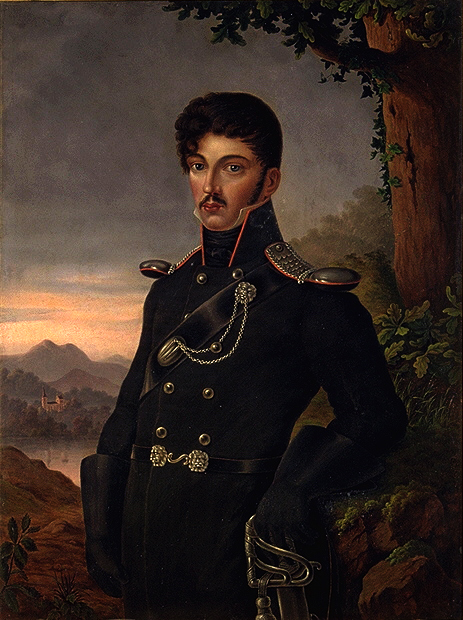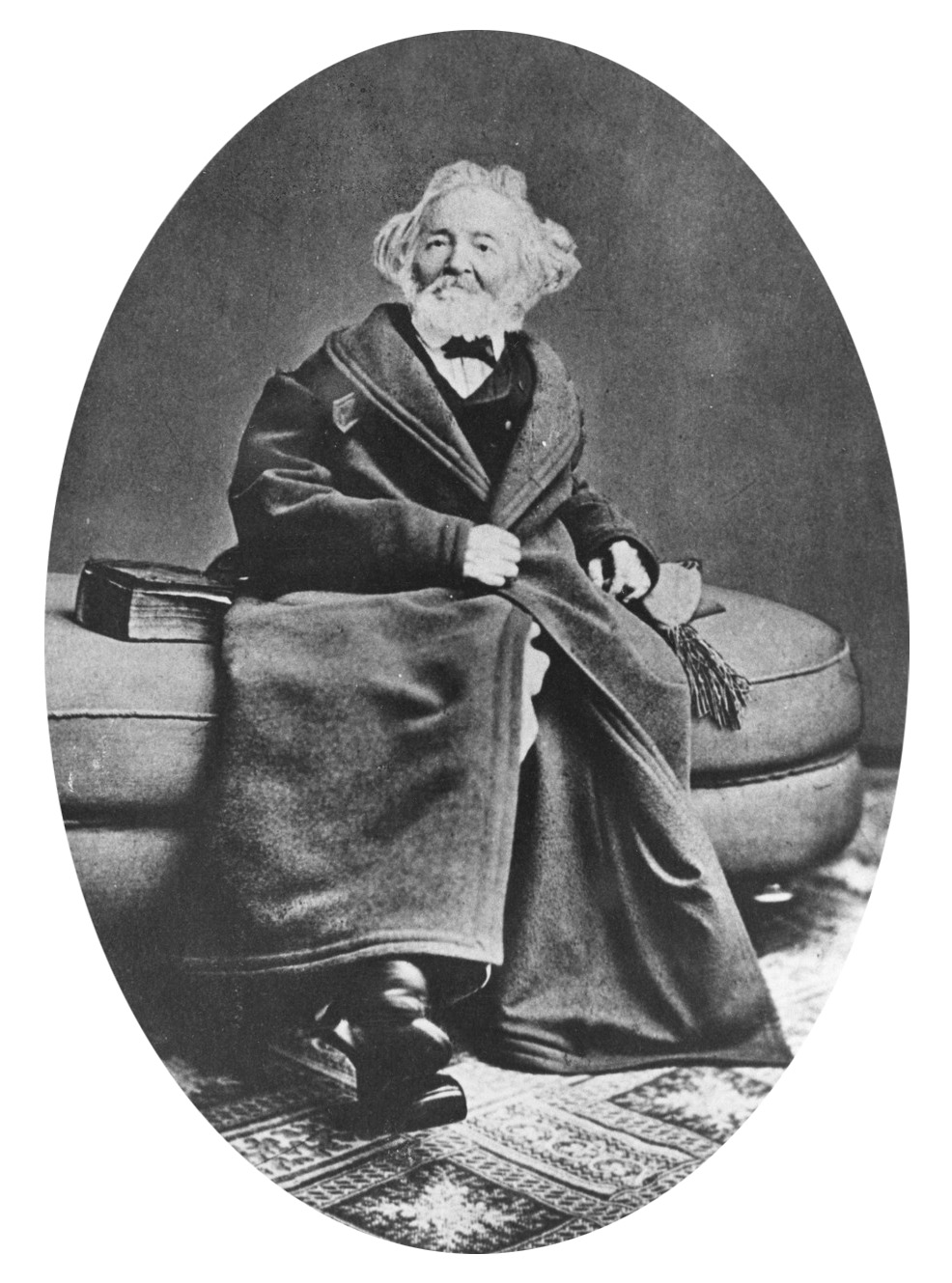|
Harry Bresslau
Harry Bresslau (22 March 1848 – 27 October 1926) was a German historian and scholar of state papers and of historical and literary muniments (historical Diplomas). He was born in Dannenberg/Elbe and died in Heidelberg. He is the father of Ernst Bresslau and his daughter, Helene married the polymath, Albert Schweitzer. Life Training Harry (also Heinrich) Bresslau studied in Göttingen and Berlin: first Law, and then History. During his studies he was a teacher in the Auerbach Orphanage in Berlin. His most important teachers were Johann Gustav Droysen and Leopold von Ranke, whose assistant he became. In 1869 he took a doctorate at Göttingen with Ranke's pupil Georg Waitz, with a thesis on the government of Emperor Conrad II. Immediately before his academic inauguration, he became Senior teacher at the Frankfurt Philanthropin. After his inauguration (1872), in 1877 Bresslau obtained an extraordinary-professorship at Berlin University. He was certainly a convinced National Lib ... [...More Info...] [...Related Items...] OR: [Wikipedia] [Google] [Baidu] |
Dannenberg (Elbe)
Dannenberg is a town in the district Lüchow-Dannenberg, in Lower Saxony, Germany. It is situated on the river Jeetzel, approx. 30 km north of Salzwedel, and 50 km south-east of Lüneburg. Dannenberg has a population of 8,147 inhabitants (December 2010). Dannenberg is located on the German Timber-Frame Road. It is the seat of the ''Samtgemeinde'' ("collective municipality") Elbtalaue. It has a soccer team which plays in the regional league, TSV Dannenberg. The actual history of the town began with the construction of the castle (first mentioned in 1153) during the rule of Volrad I, Count of Dannenberg (1153–1169), who had been given the task of settling and securing the territory by Duke Henry the Lion. The Waldemarturm is a local historical landmark, a tower in which the Danish King Valdemar II was imprisoned from 1223–1224. After World War II, Dannenberg was part of West Germany. However, it is situated very close to the Elbe river, which served as the border b ... [...More Info...] [...Related Items...] OR: [Wikipedia] [Google] [Baidu] |
Leopold Von Ranke
Leopold von Ranke (; 21 December 1795 – 23 May 1886) was a German historian and a founder of modern source-based history. He was able to implement the seminar teaching method in his classroom and focused on archival research and the analysis of historical documents. Building on the methods of the Göttingen School of History, he was the first to establish a historical seminar. Ranke set the standards for much of later historical writing, introducing such ideas as reliance on primary sources ( empiricism), an emphasis on narrative history and especially international politics ('' Außenpolitik''). He was ennobled in 1865, with the addition of a "von" to his name. Ranke also had a great influence on Western historiography and is considered a symbol of the quality of 19th century German historical studies. Ranke, influenced by Barthold Georg Niebuhr, was very talented in constructing narratives without exceeding the limits of historical evidence. His critics have noted the influenc ... [...More Info...] [...Related Items...] OR: [Wikipedia] [Google] [Baidu] |
Heinrich Graetz
Heinrich Graetz (; 31 October 1817 – 7 September 1891) was amongst the first historians to write a comprehensive history of the Jewish people from a Jewish perspective. Born Tzvi Hirsch Graetz to a butcher family in Xions (now Książ Wielkopolski), Grand Duchy of Posen, in Prussia (now in Poland), he attended Breslau University, but since Jews at that time were barred from receiving Ph.D.s there, he obtained his doctorate from the University of Jena.''Encyclopaedia Judaica'' (2007, 2nd ed.) entry on "Graetz, Heinrich," by Shmuel Ettinger and Marcus Pyka After 1845 he was principal of the school of the [...More Info...] [...Related Items...] OR: [Wikipedia] [Google] [Baidu] |
Henry II, Holy Roman Emperor
Henry II (german: Heinrich II; it, Enrico II; 6 May 973 – 13 July 1024), also known as Saint Henry the Exuberant, Obl. S. B., was Holy Roman Emperor ("Romanorum Imperator") from 1014. He died without an heir in 1024, and was the last ruler of the Ottonian line. As Duke of Bavaria, appointed in 995, Henry became King of the Romans ("Rex Romanorum") following the sudden death of his second cousin, Emperor Otto III in 1002, was made King of Italy ("Rex Italiae") in 1004, and crowned emperor by Pope Benedict VIII in 1014. The son of Henry II, Duke of Bavaria, and his wife Gisela of Burgundy, Emperor Henry II was a great-grandson of German king Henry the Fowler and a member of the Bavarian branch of the Ottonian dynasty. Since his father had rebelled against two previous emperors, the younger Henry spent long periods of time in exile, where he turned to Christianity at an early age, first finding refuge with the Bishop of Freising and later during his education at the cat ... [...More Info...] [...Related Items...] OR: [Wikipedia] [Google] [Baidu] |
Monumenta Germaniae Historica
The ''Monumenta Germaniae Historica'' (''MGH'') is a comprehensive series of carefully edited and published primary sources, both chronicle and archival, for the study of Northwestern and Central European history from the end of the Roman Empire to 1500. Despite the name, the series covers important sources for the history of many countries besides Germany, since the Society for the Publication of Sources on Germanic Affairs of the Middle Ages has included documents from many other areas subjected to the influence of Germanic tribes or rulers (Britain, Czech lands, Poland, Austria, France, Low Countries, Italy, Spain, etc.). The editor from 1826 until 1874 was Georg Heinrich Pertz (1795–1876); in 1875 he was succeeded by Georg Waitz (1813–1886). History The MGH was founded in Hanover as a private text publication society by the Prussian reformer Heinrich Friedrich Karl Freiherr vom Stein in 1819. The first volume appeared in 1826. The editor from 1826 until 1874 was Geo ... [...More Info...] [...Related Items...] OR: [Wikipedia] [Google] [Baidu] |
Hamburg
(male), (female) en, Hamburger(s), Hamburgian(s) , timezone1 = Central (CET) , utc_offset1 = +1 , timezone1_DST = Central (CEST) , utc_offset1_DST = +2 , postal_code_type = Postal code(s) , postal_code = 20001–21149, 22001–22769 , area_code_type = Area code(s) , area_code = 040 , registration_plate = , blank_name_sec1 = GRP (nominal) , blank_info_sec1 = €123 billion (2019) , blank1_name_sec1 = GRP per capita , blank1_info_sec1 = €67,000 (2019) , blank1_name_sec2 = HDI (2018) , blank1_info_sec2 = 0.976 · 1st of 16 , iso_code = DE-HH , blank_name_sec2 = NUTS Region , blank_info_sec2 = DE6 , website = , footnotes ... [...More Info...] [...Related Items...] OR: [Wikipedia] [Google] [Baidu] |
First World War
World War I (28 July 1914 11 November 1918), often abbreviated as WWI, was one of the deadliest global conflicts in history. Belligerents included much of Europe, the Russian Empire, the United States, and the Ottoman Empire, with fighting occurring throughout Europe, the Middle East, Africa, the Pacific, and parts of Asia. An estimated 9 million soldiers were killed in combat, plus another 23 million wounded, while 5 million civilians died as a result of military action, hunger, and disease. Millions more died in genocides within the Ottoman Empire and in the 1918 influenza pandemic, which was exacerbated by the movement of combatants during the war. Prior to 1914, the European great powers were divided between the Triple Entente (comprising France, Russia, and Britain) and the Triple Alliance (containing Germany, Austria-Hungary, and Italy). Tensions in the Balkans came to a head on 28 June 1914, following the assassination of Archduke Franz Ferdi ... [...More Info...] [...Related Items...] OR: [Wikipedia] [Google] [Baidu] |
University Of Strasbourg
The University of Strasbourg (french: Université de Strasbourg, Unistra) is a public research university located in Strasbourg, Alsace, France, with over 52,000 students and 3,300 researchers. The French university traces its history to the earlier German-language ''Universität Straßburg'', which was founded in 1538, and was divided in the 1970s into three separate institutions: Louis Pasteur University, Marc Bloch University, and Robert Schuman University. On 1 January 2009, the fusion of these three universities reconstituted a united University of Strasbourg. With as many as 19 Nobel laureates, and two Fields Medal winners, the university is ranked among the best in the League of European Research Universities. History The university emerged from a Lutheran humanist German Gymnasium, founded in 1538 by Johannes Sturm in the Free Imperial City of Strassburg. It was transformed to a university in 1621 (german: Universität Straßburg) and elevated to the ranks of a royal ... [...More Info...] [...Related Items...] OR: [Wikipedia] [Google] [Baidu] |
Alsace
Alsace (, ; ; Low Alemannic German/ gsw-FR, Elsàss ; german: Elsass ; la, Alsatia) is a cultural region and a territorial collectivity in eastern France, on the west bank of the upper Rhine next to Germany and Switzerland. In 2020, it had a population of 1,898,533. Alsatian culture is characterized by a blend of Germanic and French influences. Until 1871, Alsace included the area now known as the Territoire de Belfort, which formed its southernmost part. From 1982 to 2016, Alsace was the smallest administrative ''région'' in metropolitan France, consisting of the Bas-Rhin and Haut-Rhin departments. Territorial reform passed by the French Parliament in 2014 resulted in the merger of the Alsace administrative region with Champagne-Ardenne and Lorraine to form Grand Est. On 1 January 2021, the departments of Bas-Rhin and Haut-Rhin merged into the new European Collectivity of Alsace but remained part of the region Grand Est. Alsatian is an Alemannic dialect closely related ... [...More Info...] [...Related Items...] OR: [Wikipedia] [Google] [Baidu] |
Strasbourg
Strasbourg (, , ; german: Straßburg ; gsw, label= Bas Rhin Alsatian, Strossburi , gsw, label= Haut Rhin Alsatian, Strossburig ) is the prefecture and largest city of the Grand Est region of eastern France and the official seat of the European Parliament. Located at the border with Germany in the historic region of Alsace, it is the prefecture of the Bas-Rhin department. In 2019, the city proper had 287,228 inhabitants and both the Eurométropole de Strasbourg (Greater Strasbourg) and the Arrondissement of Strasbourg had 505,272 inhabitants. Strasbourg's metropolitan area had a population of 846,450 in 2018, making it the eighth-largest metro area in France and home to 14% of the Grand Est region's inhabitants. The transnational Eurodistrict Strasbourg-Ortenau had a population of 958,421 inhabitants. Strasbourg is one of the ''de facto'' four main capitals of the European Union (alongside Brussels, Luxembourg and Frankfurt), as it is the seat of several European ins ... [...More Info...] [...Related Items...] OR: [Wikipedia] [Google] [Baidu] |
Heinrich Von Treitschke
Heinrich Gotthard Freiherr von Treitschke (; 15 September 1834 – 28 April 1896) was a German historian, political writer and National Liberal member of the Reichstag during the time of the German Empire. He was an extreme nationalist, who favored German colonialism and opposed the British Empire. He also opposed Catholics, Poles, Jews and socialists inside Germany. Early life and teaching career Treitschke was born in Dresden. He was the son of an officer of the Kingdom of Saxony's army who became governor of Königstein and military governor of Dresden. Treitschke developed an increasing hearing problem at a young age, and so was prevented from entering public service. After studying at the universities of Leipzig and Bonn, where he was a student of Friedrich Christoph Dahlmann, he established himself as a ''Privatdozent'' at Leipzig, lecturing on history and politics. At one time he became very popular with the students, but his political opinions made it impossible for the ... [...More Info...] [...Related Items...] OR: [Wikipedia] [Google] [Baidu] |



.jpg)


.jpg)

